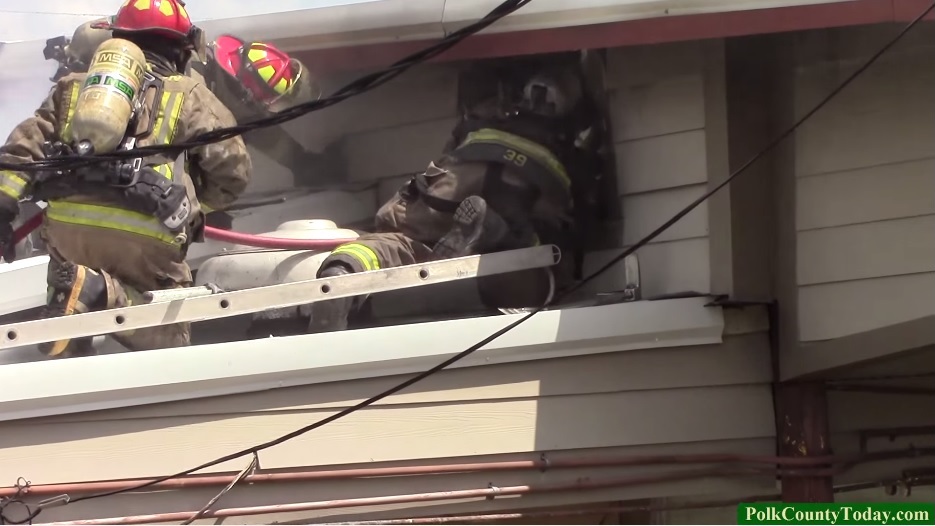Brother Responds to Union’s Response
First, let me apologize. I was aware that Dan Dugan had written a response to The Washington Post editorial blasting IAFF Local 36’s defense of two members involved in the David Rosenbaum case. I didn’t realize that The Post had published the letter. Otherwise, I would have run it sooner. Below is Dugan’s letter, followed by a response from David Rosenbaum’s brother Marcus.
Also, you can go here to see Dugan’s response before it was edited by The Washington Post. There is also a complaint from Local 36’s lawyers to the Post ombudsman.
Tomorrow we will share with you the views of AFGE Local 3721 President Kenneth Lyons on this issue.
A Disservice to First Responders
Monday, June 4, 2007; A14
The Post’s editorial on the District’s firefighters [“The Firefighters’ Dodge,” May 19] misinformed the public and did a disservice to due process by praising the mayor and the fire and emergency medical services chief for stepping outside the law to scapegoat two firefighters who came to David E. Rosenbaum’s assistance on Jan. 6, 2006.
After more than a year of media coverage wrongly suggesting that Mr. Rosenbaum was suffering from a bleeding head wound that the firefighters ignored, the editorial acknowledged that his injury was of a kind that is “hard to diagnose in the field.”
In truth, there was no bleeding or other observable sign of trauma. That is why a trial board found that none of the five firefighters placed on charges in the wake of an erroneous inspector general’s report had done anything to warrant termination.
Without any visible injuries to Mr. Rosenbaum, the firefighters reasonably concluded that his condition was attributable to alcohol consumption. Astonishingly, your editorial suggested that alcohol was not present. But even the inspector general noted that Mr. Rosenbaum had drunk wine that night, and a hospital test that evening confirmed his elevated blood-alcohol level. To point this out is not to show disrespect for Mr. Rosenbaum. By all accounts he was a wonderful man, and his loss is deeply mourned. But it would have been wrong for the firefighters to have ignored intoxication as an explanation for his condition.
In the face of these facts, The Post’s treatment of this incident as evidence of a “culture of complacency” is offensive, not only to these two men but to all firefighters who put their lives on the line for citizens every day.
DANIEL DUGAN
President
D.C. Fire Fighters Association
Accountability for My Brother’s Death
Friday, June 8, 2007; A18
My family and I were distressed to read Daniel Dugan’s June 4 letter defending the firefighters in his union who treated my brother, David E. Rosenbaum, after he was brutally attacked in January 2006. District Fire Chief Dennis Rubin ordered harsher punishment for the two men convicted by a departmental trial board not to make them scapegoats, as Mr. Dugan claims, but to hold them accountable.
The trial board concluded that the actions of the two firefighters were “improper and contrary to medical protocols,” which require individuals exhibiting my brother’s symptoms to be classified as trauma patients and rushed to a hospital. Instead, the emergency responders assumed David was drunk, failed to examine him properly and classified him as low priority.
What’s more, a third firefighter, who was in the ambulance and who was inexplicably acquitted by the trial board, failed to recognize David’s worsening condition during the long ride to the hospital. Mr. Dugan insists that because there was no open wound, it was impossible for trained EMTs to confidently assess my brother’s injuries. Yet despite his trauma and emerging shock during his hour in their care, and despite at least one firefighter’s having noticed that he likely had been robbed, they confidently presented him as just another drunk.
If Mr. Dugan thinks that is proper care, he insults the many dedicated EMTs and paramedics in the department. Blindly and recklessly defending any union member, no matter how egregious the errors committed, leads to the culture of indifference that has been so detrimental to the District’s emergency services. Only strong leadership that insists on true accountability has any hope of turning things around. That leadership must come from the chief, but it also must come from the union.
MARCUS D. ROSENBAUM
Washington

